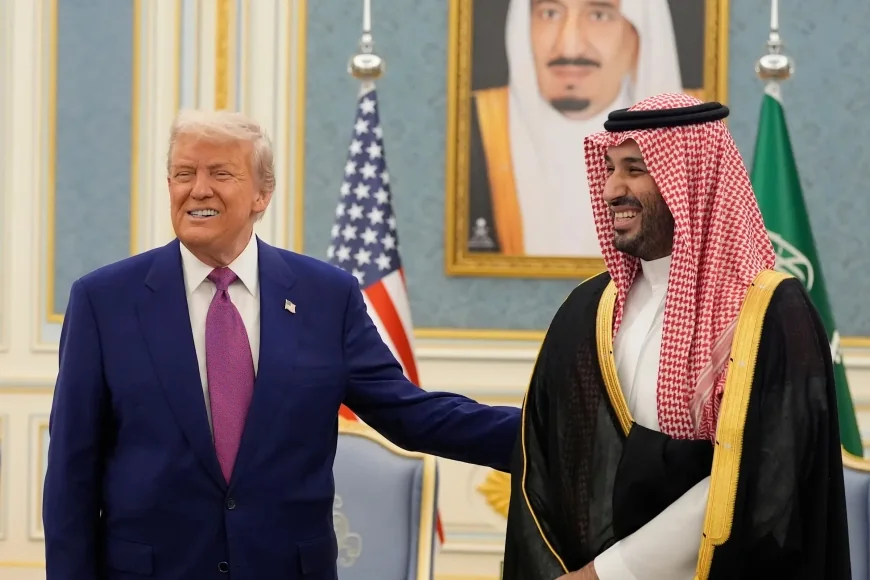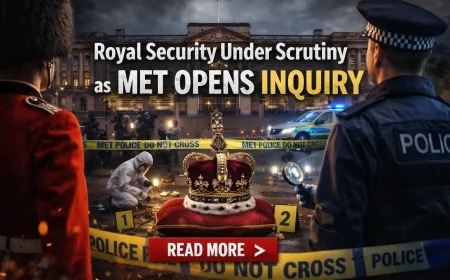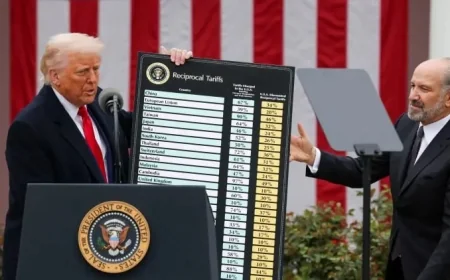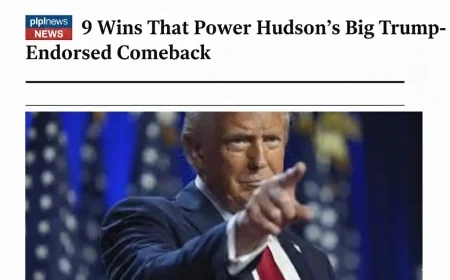Trump Faces Hurdles in Pushing Saudi–Israel Deal
President Donald Trump has spoken openly about how important he sees normalizing relations between Saudi Arabia and Israel.

He has cited his efforts during his first term to advance the Abraham Accords—a project that formalized commercial and diplomatic ties between Israel and three Arab countries—as a key part of his plan to bring long-term stability to the Middle East, as the fragile ceasefire between Israel and Hamas in Gaza remains in place.
Normalization efforts are expected to be high on the agenda on Tuesday when Trump meets with Saudi Crown Prince Mohammed bin Salman during his grand visit to the White House.
“I hope that Saudi Arabia will be going into the Abraham Accords very shortly,” Trump told reporters aboard Air Force One on Friday as he made his way to Florida for the weekend.
Nevertheless, Trump's optimism that a US-brokered agreement could be reached soon has been tempered by more sobering internal assessments. Saudi Arabia is unlikely to sign these agreements any time soon, but there is cautious hope that an agreement will be signed by the end of Trump's second term, according to three administration officials who spoke on condition of anonymity to discuss internal deliberations.
The Trump administration and the subsequent Biden administration attempted to persuade Saudi Arabia to join the Abraham Accords. However, these hopes were dashed first by opposition from the Crown Prince's father, King Salman, during Trump's first term, and then by Prince Mohammed himself after Hamas attacks on Israel on October 7, 2023, which sparked the Gaza War.
Although the Crown Prince, widely known as MBS, has indicated he may be more flexible than his father on the matter, a guaranteed path to Palestinian statehood remains a prerequisite and Israel strongly opposes it.
Trump may try to convince Prince Mohammed that the US leader's 20-point Gaza peace plan represents this path. However, this could risk angering Israelis and weakening their cooperation in the effort, especially if the Republican president promises a detailed timeline for meeting the goals.
One official said that the best outcome of this week's talks, from the US perspective, could be that Saudi Arabia accepts Trump's plan as a starting point for eventual Palestinian statehood and publicly agrees to consider joining the agreements.
Saudi Arabia wants a path toward Palestinian statehood.
In recent weeks, Trump has predicted that once Saudi Arabia signs the agreement, "everyone" in the Arab world will join in. He has claimed that Saudi Arabia will also join because the ceasefire in Gaza holds.
“We have a lot of people joining now the Abraham Accords, and hopefully we’re going to get Saudi Arabia very soon,” Trump said in a speech to business leaders this month where Princess Reema Bandar Al Saud, Saudi Arabia’s ambassador to Washington, was a special guest. Trump jokingly assured the diplomat, “I’m not lobbying.”
Trump says his optimism is driven by a major shift in Middle East dynamics, which he believes has opened the way for regional leaders to move toward lasting peace.
Iran, a common enemy for Saudi Arabia and Israel, has seen its numerous allies in Gaza, Lebanon, and Yemen diminish after two years of conflict in the Middle East, and Tehran's nuclear program has been crippled by US strikes in June. Trump argues that these factors helped lay the foundation for the agreement between Saudi Arabia and Israel.
Nevertheless, Trump's public confidence does not match Saudi Arabia's stance that any normalization agreement must first establish a clear path to Palestinian statehood.
Yet the visit could provide an opportunity for Trump to nudge the crown prince toward his ultimate goal, especially if Trump can demonstrate that he is receptive to the need for the establishment of a Palestinian state.
“Trump showing openness and even support for a Palestinian state could go a long way in his hopes of inching MBS toward normalization," said John Hannah, who served as national security adviser for Vice President Dick Cheney.
But Trump will likely face some challenges in bringing Prince Mohammed along, at least in the near term.
The searing images of the Israel-Hamas war are still fresh, and rebuilding the devastated region will be a long endeavor.
Israel and Hamas are making slow progress on the return of the remains of the last hostages in Gaza. But several key decisions lie ahead—the disarmament of Hamas, the establishment of international security forces in the region, and the establishment of an alternative governance structure for Hamas-held north Gaza—that could undermine this fragile ceasefire agreement if things go wrong.
Continued Israeli settler violence against Palestinians in the West Bank has increased regional distrust of Israel.
“As long as the scenes on Saudi television continue to be scenes of devastation and misery in Gaza, I think it’s going to be very hard for MBS to move in this direction,” said Jonathan Schanzer, executive director at the Foundation for Defense of Democracies, a hawkish Washington think tank. “That said, I also believe that there are things that the Saudis can do, as they’ve done in the past, to advance the process of normalization across the region.”
The Crown Prince is expected to visit the White House, where he will bring a list of wishes, including formal assurances from Trump defining the scope of US military protection for the kingdom and an agreement to purchase US-made F-35 fighter jets, one of the world's most advanced aircraft.
However, administration officials reported that as the White House was finalizing preparations for the visit, it appeared Trump would be reluctant to sign the fighter jet deal. They also noted that Trump has a history of unpredictable behavior and that if the Crown Prince somehow persuades him, he could approve the sale.
Officials said the administration is wary of weakening Israel's "qualitative military advantage" over its neighbors, especially at a time when Trump relies on Israeli support for the success of his Gaza peace plan.
Another long-standing concern, which also derailed a similar potential sale to the United Arab Emirates, is that F-35 technology could be stolen by China or somehow transferred to China, which has close ties with both the UAE and Saudi Arabia.
Hannah, a former Cheney aide and now a senior fellow at the Jewish National Security Institute in the United States, said the Crown Prince's normalization has become more expensive after the Gaza incident. But Hannah said it would be unwise for Trump to abandon his position.
“I think it would be folly not to insist that the ultimate integration of these planes into the Saudi order of battle be tied to normalization and a more fundamental and permanent transformation in Saudi-Israel relations and the regional security landscape,” Hannah said.
What's Your Reaction?
 Like
0
Like
0
 Dislike
0
Dislike
0
 Love
0
Love
0
 Funny
0
Funny
0
 Angry
0
Angry
0
 Sad
0
Sad
0
 Wow
0
Wow
0











































